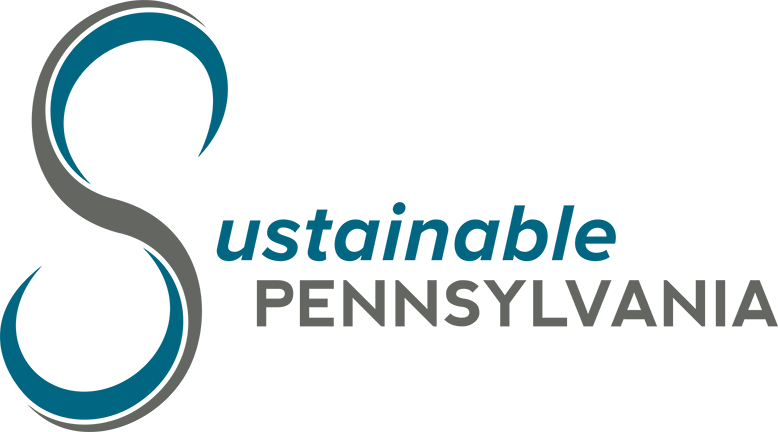A Sustainable – Circular Materials System
Creating a sustainable waste or materials management system starts with looking at the big picture. How does the system currently function and how does it interact with other systems? First, we would like to consider the waste management system as the end of a larger materials management system. That is the reason this section is titled Waste and Materials Management.
Currently the bulk of our materials management system works in a linear fashion. It starts in one place, typically extracting raw material like oil or iron from the earth, and it ends at another place such as a landfill or an incinerator. But to create a sustainable materials management system, we need a system that works in a more circular fashion. In a circular system, once a raw material enters the system the goal is for it to be used by the end user in the original processed form over and over again. For example, as a glass jar. This limits the need for additional raw materials to be removed from the earth and enter our material system. When this product has come to its useful end in its first form (the glass broke for example), it is captured in a recycling stream and sent back to a processing facility to be converted back into a raw material (glass is broken down into a raw material called cullet). This raw material is then used to make new products (a new jar, light fixtures, glass block, etc.) and the cycle starts over.
A well-designed circular process results in very little material going to the landfill and/or incinerator and keeps the need for recycling limited. A circular system can be designed to keep many materials, such as glass, paper, metal, plant and animal based materials, and a limited number of plastics circulating as usable materials and products. In the case of plant and animal based materials, such as food or yard waste, the process is called composting, but it works in a similar fashion.
Barriers and Challenges of Circularity
There are many materials and processes in our current system that prevent it from working in a circular fashion. Many products are designed to be used one time before they enter the recycling system or worse, waste collection headed to the landfill or incinerator. We call a product like this, single use. Single use products may be recyclable, but the energy used to recycle products after just one use, dramatically increases pollution and natural resource consumption. The world produces more than 100 million tons of single use plastic every year and most are either not recycled at all (only 9% of single use plastics are) or are only recycled (or as we like to call it – “down-cycled”) one time.
Municipalities have significant influence over the final stage of the cycle – collection and end of life treatment. To improve the circularity of the system, a municipality must do all they can to capture recyclable or compostable materials and send as little as possible to the landfill or incinerator. This section of the program will discuss how a municipality can accomplish this and it starts with good data collection, a goal, and a plan.
Assessing Data, Data Collection and Setting a Goal.
When a municipality sets a goal to reduce waste and improve materials management and collections, it is first important to understand the effectiveness of the current system. A thorough assessment of operations and of the materials sent to the landfill and the Materials Recovery Facilities (MRF) by residential and commercial collectors will provide a baseline for future improvements.
Understanding what data the municipality is gathering annually or receiving from their operations team, service provider, landfill/incinerator, MRF and/or composting facility is important when trying to improve the results of a municipal materials/waste management program. It is also important to understand how the information is gathered, because oftentimes waste and recycling data is based on aggregate county level data or estimations that will not help inform those managing the municipal system. Some of the data requested in actions related to this focus area may be difficult for some municipalities to gather simply because of how their system is designed.
It is suggested that the municipality work with their hauler/service providers to devise a method to collect the data requested in these actions (if they do not already) in a way that maintains or improves system efficiency, while getting accurate community level data. For example a community may not currently receive annual data on the residential tonnage they send to the landfill or incinerator, because the trucks servicing a community visit multiple communities on one trip. A possible solution would be to have this truck weighed at the landfill/incinerator or transfer station, and estimate how much is from each community based on the number of households or locations serviced. This is not a perfect solution, but as new policies are implemented to reduce waste, the estimated data should reflect the program impact..
We strongly suggest avoiding solutions that would require the truck to travel back and forth to landfill/incinerator after collecting from each community. This would reduce the efficiency of the current system, and potentially force what are often diesel vehicles to increase their vehicle miles traveled and thus pollution.
Publicly setting a goal to achieve a zero waste standard sends a strong signal to your residents and business owners that the municipal leadership sees the importance of fostering a circular economy and has fully embraced sustainability.
